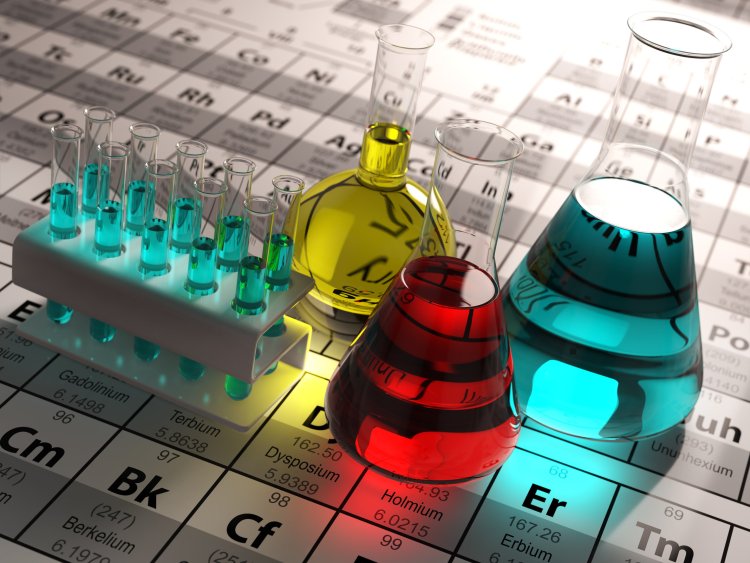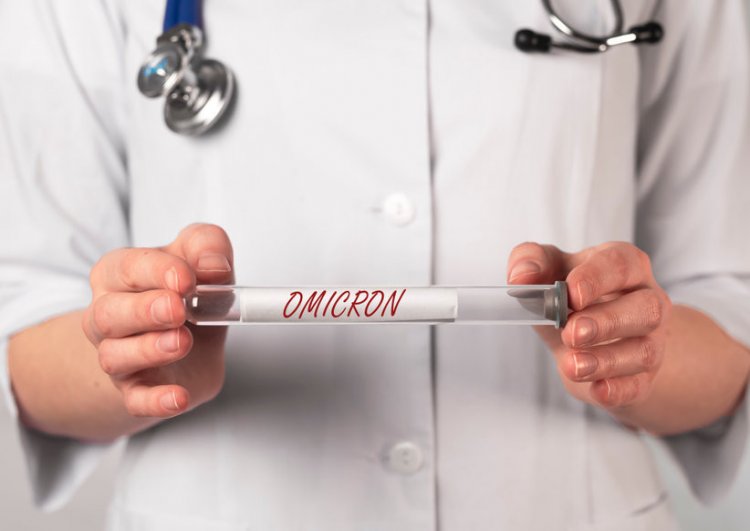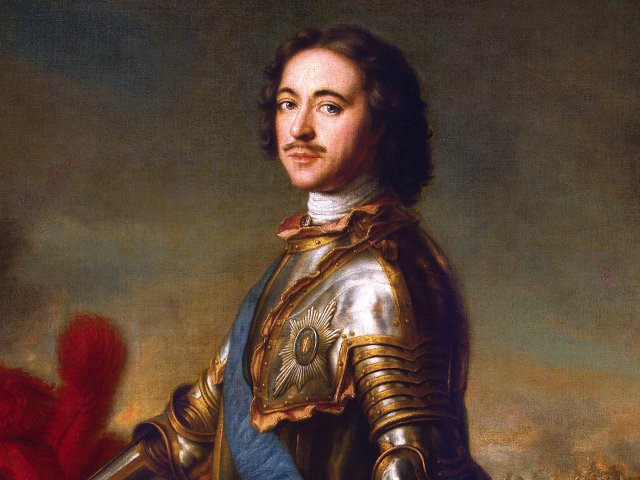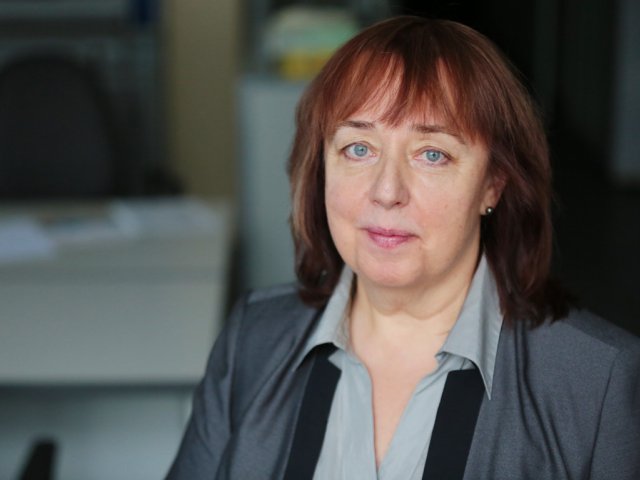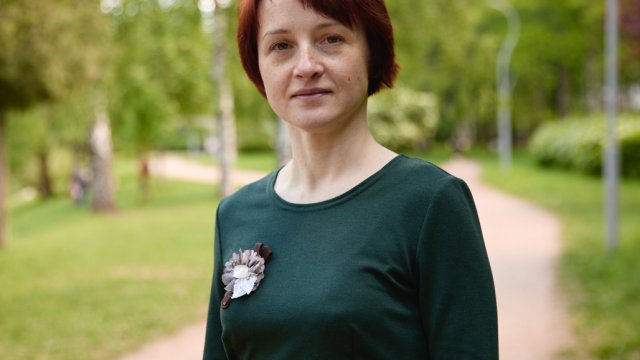Scientific Highlights of 2021: The Natural Sciences. Photo: maxxyustas / 123RF
Despite the challenges of this year related to the COVID-19 pandemic, 2021 was incredibly rich in scientific events and cutting-edge research results. We have been reporting on events dedicated to the Year of Science and Technology in Russia all year long, analyzing the activities of the Nobel laureates, talking to Russian and foreign scientists working on breakthrough research projects in medicine, physics, chemistry, cosmology, social sciences, and the humanities.
One of the most important events of the year, of course, was the presentation of the Nobel Prizes for outstanding achievements in the natural sciences. Thus, the Prize in Physiology and Medicine was awarded to David Julius and Ardem Pataputyan for the discovery of temperature and touch receptors. The scientists made a major breakthrough in understanding the mechanisms of functioning of these receptors and applied the most modern methods to study their molecular structure, and most importantly – the control mechanisms of these receptors. In particular, they showed that pressure receptors exist not only in animals, higher animals, including us; plants have homologous receptors as well. And these receptors turned out to be the largest of all existing.
The Nobel Prize in Physics was awarded for the physical modeling of climate and the discovery of disorder and fluctuations in physical systems, and the Nobel Prize in Chemistry was awarded for the creation of a tool for building molecules.
This year, the most important achievements in the field of natural sciences and the fight against the COVID-19 pandemic were made by Russian scientists. For example, the Chumakov Institute of Poliomyelitis and Viral Encephalitis, headed by RAS Corresponding Member A.A. Ishmukhametov, created and launched a whole-virion vaccine "CoviVac" in 2021 – similar drugs against coronavirus infection were not created either in Europe or the USA. According to A.A. Ishmukhametov, the success of the development was ensured by effective interaction of the Chumakov Center both with partner companies from the industrial sector and scientific institutes of the Russian Academy of Sciences. At the same time, the development of the unique preoral probiotic, or kefir, vaccine has reached the finish line at the Institute of Experimental Medicine, under the guidance of A.N. Suvorov, Corresponding Member of RAS. Scientists at the Smorodintsev Research Institute of Influenza (a Russian Ministry of Health federal institution) are creating a promising bifunctional vaccine – it will be effective against both influenza and coronavirus.
This year, a new strain of coronavirus called "omicron" appeared, causing great concern in the world. Russian science quickly responded to the emergence of a new threat: scientists created a new test system for omicron detection. It is now being tested in South Africa and it has already become possible to use it in our country as well.
A new strain of Omicron coronavirus was first identified in late November 2021 in southern Africa. This strain is believed to be more contagious than other previous COVID-19 strains due to a large number of mutations. Photo: suprunovich / 123RF
The development of drugs against coronavirus is not lagging behind. This year, a new type of drug that blocks the virus entry into the cell has reached the final stage of preclinical trials. The drug is based on a new molecule, PDSTP, created in the laboratory of biomedical chemistry at the Federal Research Centre “Fundamentals of Biotechnology” of the Russian Academy of Sciences.
"I would like to highlight the development of a drug by the Federal Research Center ‘Fundamental Fundamentals of Biotechnology’ in Moscow. The employees of the Center have proposed a completely new type of drug that blocks the virus entry into the cell. Such drugs have no analogues in the world," Alexander Sergeev, President of the Russian Academy of Sciences, claimed at a press conference.
In 2021, Russian scientists managed to achieve impressive results in the fight against cancer as well. For example, the National Medical Research Radiological Centre of the Ministry of Health of the Russian Federation, under the leadership of the General Director of the NMRRC and RAS Academician A.D. Kaprin, was the first person in the world to perform cerebral perfusion in a patient with glioblastoma. Previously, preclinical studies of this promising method of treatment of patients with head and neck cancer were conducted at the Research Institute of Medical Primatology in Sochi with the participation of lower primates (the hamadryas baboon).
A 45-year-old woman with the grade IV glioblastoma, a patient at the National Medical Research Radiological Centre, became the first person in the world to receive a unique experimental treatment, perfusion of the brain (affected by glioblastoma) with chemotherapeutic agents. Photo from the operating room: from the archive of Scientific Russia. Photo: Andrey Luft / Scientific Russia
The year 2021 will be remembered for outstanding scientific events. For example, in October of this year, the All-Russian Festival "NAUKA 0+" – one of the key events of the Year of Science and Technology – was held under the motto of "Touch the Science!" The leading scientific institutes and industrial corporations all over the country demonstrated their developments whilst scientists gave lectures. The goal of the festival was to tell the public what scientists do, how scientific research improves the quality of life, and what prospects it opens up for modern people. A favorite and traditional part of the festival – lectures by Nobel laureates delivered especially for the festival guests.
Another important event in Russian science is the completion of the field research phase of the Big Norilsk Expedition 2021 (BNE) in Taimyr. This year, RAS scientists managed to work on more than a hundred spots on the peninsula and take more than a thousand samples with a total weight of about 800 kilograms. Basins of Pyasina, Norilka, and Ambarnaya rivers became reference points of the expedition, Lake Pyasino was studied as well, writes TASS. The expedition included scientists from 14 institutes of the Siberian Branch of the Russian Academy of Sciences. During the summer of 2021, specialists collected samples of soil, plants, and bottom sediments; afterwards, they proceeded with laboratory works.
All the achievements would have been impossible without consolidation of efforts of different specialists as well as their experience exchange. We wish all the scientists to have even more opportunities for learning new things in the upcoming new year. And we, in our turn, will continue telling you about the most fascinating research projects and events in the world of science. Stay tuned!
